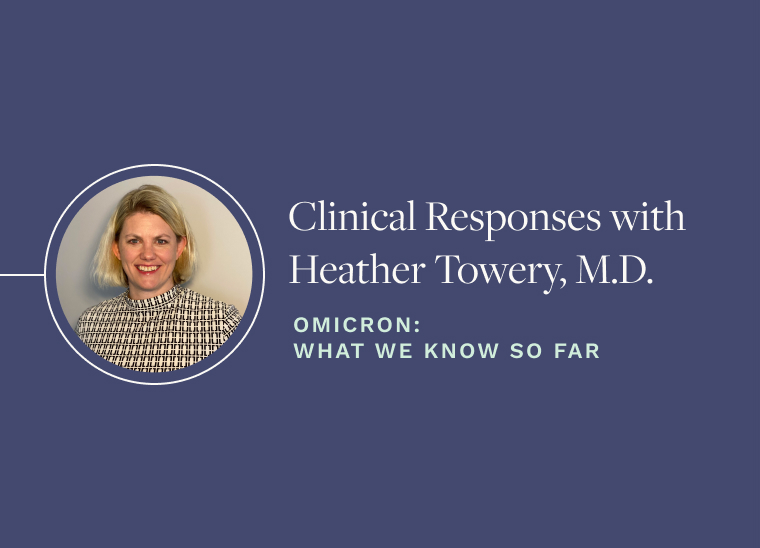You’ve probably been hearing a lot about the most recent COVID-19 variant, Omicron. The variant was named a “variant of concern” by the World Health Organization on Friday, November 26.
While there is still a lot we don’t know about the new variant, it’s too early to determine the impact it will have, so preparation is our best defense. Viruses mutate frequently and this isn’t the first variant of COVID-19. Not all variants, even those labeled “variants of concern,” end up increasing the incidence or severity of disease. It is too soon to know if the Omicron variant will be more transmissible, evade existing vaccines, or lead to more severe illness. Scientists are watching it closely and vaccine manufacturers are ready to test the existing COVID-19 vaccines against the new variant, and if necessary, re-formulate their vaccines.
Currently, the most prevalent global COVID-19 variant is Delta. It is responsible for the most recent wave of infections across the U.S. and around the world. While it proved to be more transmissible, it is encouraging that the current COVID-19 vaccines have held up well against the Delta variant, lessening the severity of symptoms and likelihood of hospitalization. This could also be the same case for Omicron. We will know more in the next few weeks.
The good news is that researchers worldwide continue to identify and map COVID-19 variants very quickly so that we can learn and prepare. Active surveillance, which includes testing, is critical to understanding the virus so that we can monitor it and adapt our science and public health protocols to manage it.
Urge your employees to continue to follow these public health measures as they travel this holiday season:
- Social distance
- Wear a mask indoors or whenever you can not keep your distance from others
- Get the COVID-19 vaccine and booster shot.
These measures all work to slow the spread of COVID-19.
Authored by Heather Towery, M.D., VP Clinical Strategy and Enterprise Partnerships at Eden Health
Disclaimer: This information is based on current resources available and is subject to change. This document and its contents are provided for informational purposes only, and not intended to be, and should not be understood or treated as, a substitute for professional medical advice around COVID-19, its risks or symptoms, or to take the place of any local, state and national laws and guidelines around COVID-19. Always seek the advice of a physician or other qualified health provider with any questions you may have regarding a medical condition.





